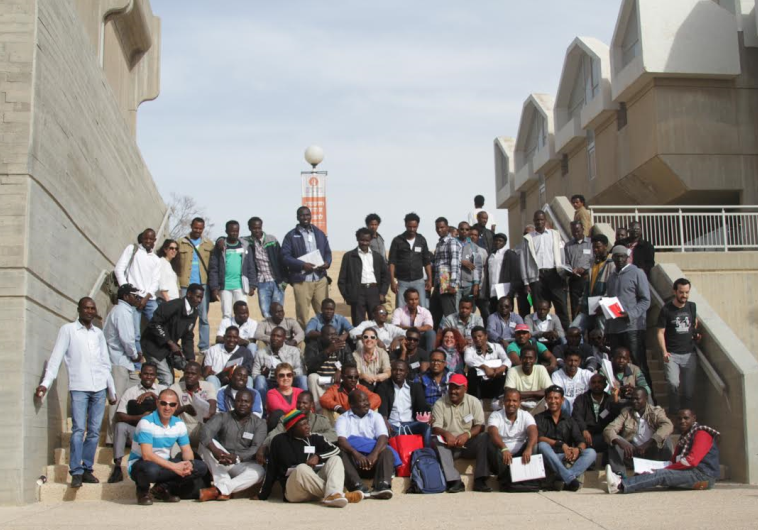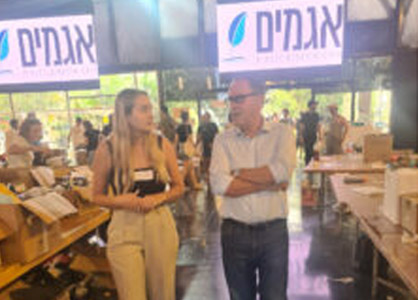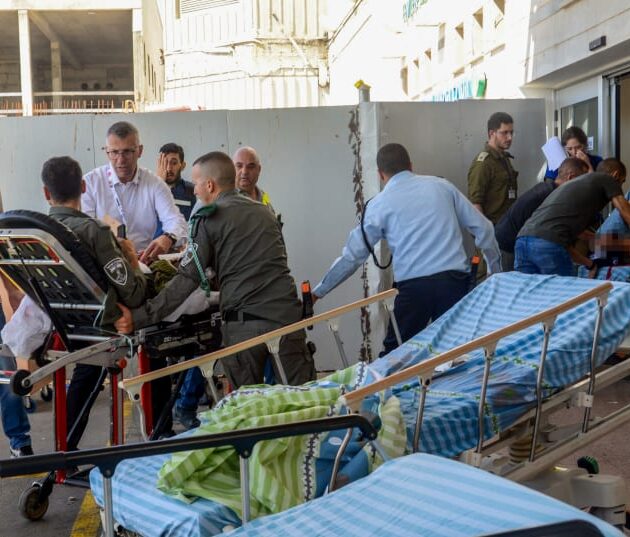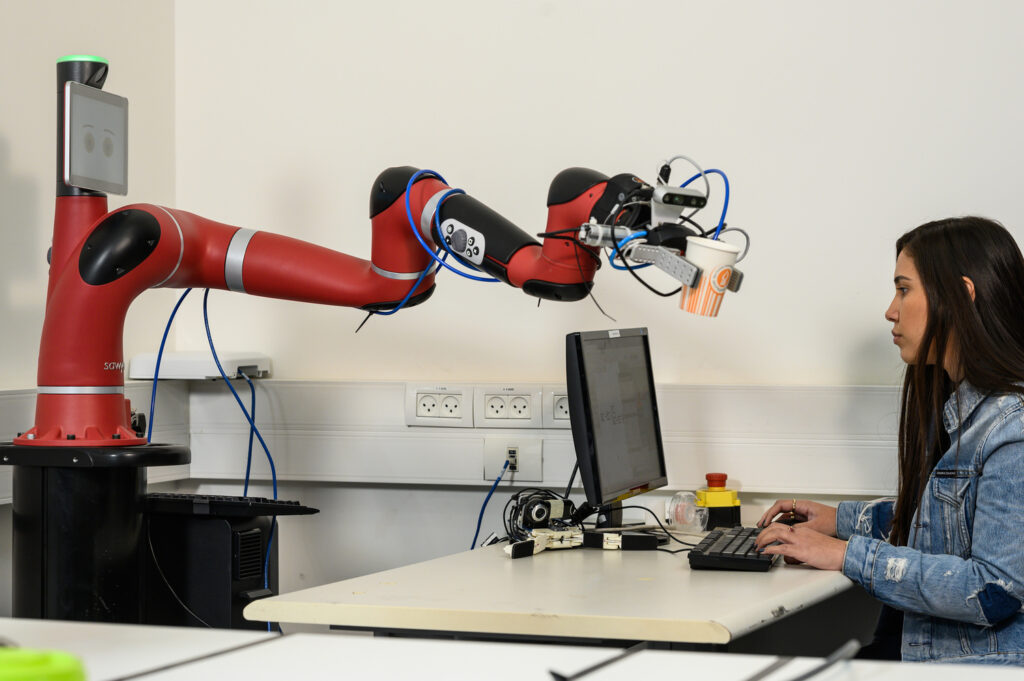
BGU Hosts Academic Program for Darfur Refugees
BGU Hosts Academic Program for Darfur Refugees
May 26, 2015
Negev Development & Community Programs
The Jerusalem Post — Approximately 100 asylum-seekers from the Holot open detention center on the Egyptian border received certificates of completion from BGU’s Free Your Mind project.
The project came about as a result of research on the resilience of asylum-seekers from Darfur living in the Holot detention center, conducted by Prof. Vered Slonim-Nevo and Dr. Maya Lavie-Ajayi of BGU’s Charlotte B. and Jack J. Spitzer Department of Social Work.
“During the research we asked the asylum-seekers, ‘What are your hopes for the future?’ They related how important it is for them to study and said their dream is to study at a university,” explained the researchers.
Once a week, the participants were brought to BGU’s Marcus Family Campus for a day of study including a lunch donated by Be’er Sova, a Beer-Sheva based nonprofit that provides fresh, hot meals for the under served.
Program participants had the opportunity to be part of the planning the program. For example, they helped decide which courses should be included. Participants could take courses in basic and advanced Hebrew; introduction to computer sciences; psychology and education; politics and society, crisis management and humanitarian aid; introduction to philosophy; and new media.
Moran Mekamel, a social work graduate student at BGU and the head of Ben-Gurion Students for Refugees and Asylum-Seekers, says the opportunity to study at the University is very important for many of the detainees at Holot. Many of the participants hadn’t left the refugee facility in over a year due to depression.
Although Holot is officially called a detention center, it is run by the Prisons Service and all detainees have prisoner numbers registered in the prison system.
Kamal Abrahim, a 27-year-old participant from Darfur fled to Israel just over a year ago to escape the genocide in Sudan. Abrahim says it is extremely frustrating being incarcerated and this program made him think “I can do something; I can accomplish something.”
“I feel now that they have pushed me to something,” he says of the courses and lecturers in the program. “I liked the philosophy classes; the computer sciences was really hard,” he adds.
In addition, Abrahim has been telling friends about the program and is encouraging them to participate next time.




